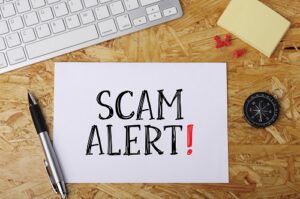 In the aftermath of Hurricanes Helene and Milton, it’s more important than ever to be aware of scams that often follow natural disasters. Severe weather events leave communities vulnerable — not just to physical damage, but to scammers looking to take advantage.
In the aftermath of Hurricanes Helene and Milton, it’s more important than ever to be aware of scams that often follow natural disasters. Severe weather events leave communities vulnerable — not just to physical damage, but to scammers looking to take advantage.
Fraudsters may approach storm victims by phone, email, or even door-to-door pretending to offer help. But here are some Federal Communications Commission recommendations on how you can protect yourself from common post-disaster scams.
Avoid Government Assistance Scams
Be aware that federal disaster assistance agencies like FEMA never call, text, or ask for money in exchange for aid. Scammers may impersonate officials and ask for personal or financial information. If this happens, hang up immediately and verify the information through official sources.
Insurance Scams
If you receive a call about an insurance claim, don’t provide personal information without verifying the source. Always reach out to your insurance provider directly to ensure the legitimacy of the claim. Contractors might also pose as partners with your insurance company but make sure to verify their credentials before sharing any details.
Charity Fraud
Scammers oftentimes pose as charity organizations following disasters. Always make sure to donate through trusted and well-known organizations and verify phone numbers or email addresses on official websites. Be cautious about unsolicited emails or social media posts requesting donations.
Stay vigilant and protect yourself from fraud as you recover from a natural disaster! Find out steps you can take if you were scammed and report fraud by visiting the Federal Trade Commission website.
Written by Nitanga Safi, TDS Communications Intern


